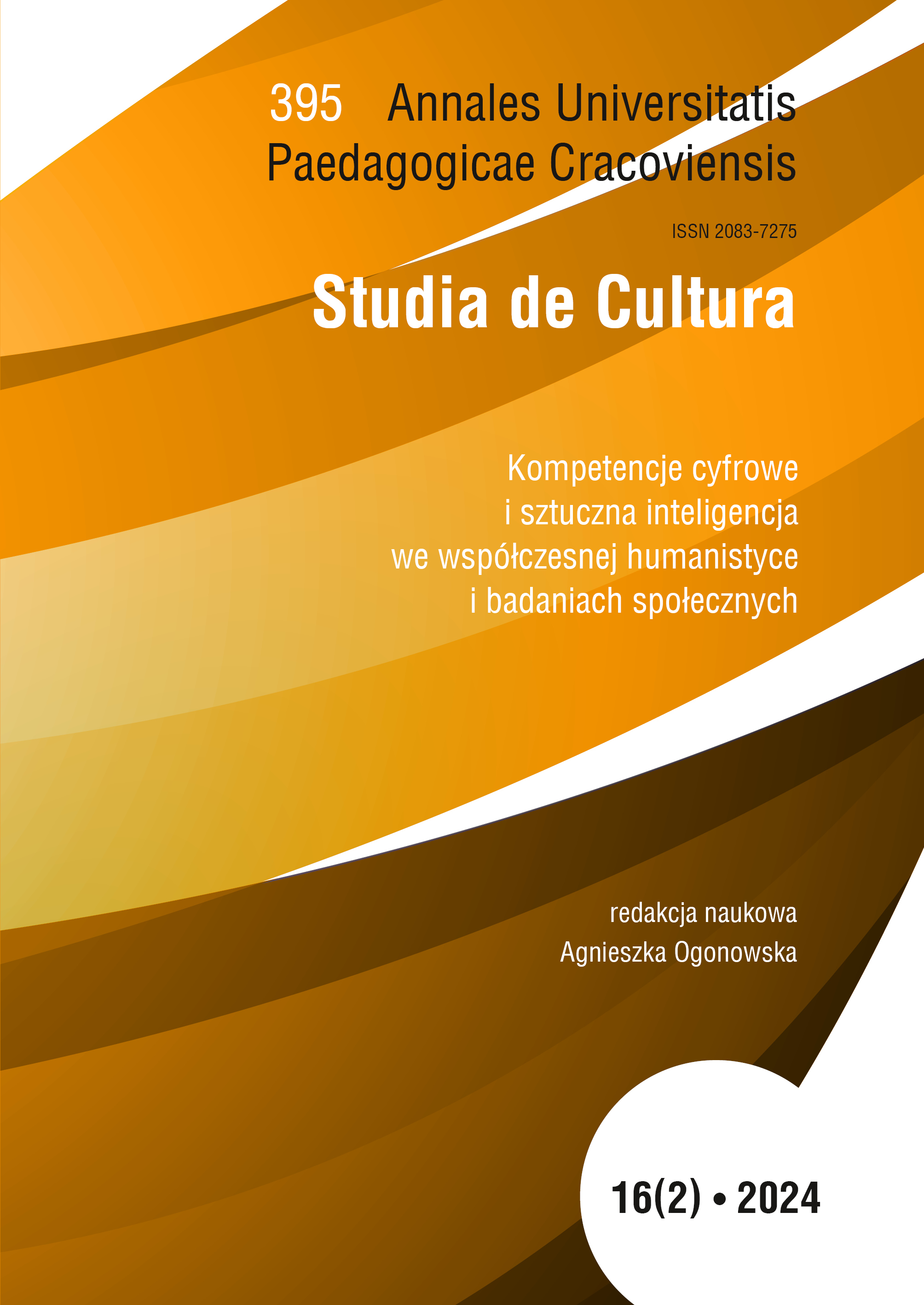Abstract
The aim of this article is to comprehensively examine the ways in which digital competences and their components are defined in the recommendations of the European Union (EU), the European Commission (EC) and the United Nations Educational, Scientific and Cultural Organization (UNESCO). The study delves into the evolving landscape of digital competences and highlights commonalities and differences in the frameworks proposed by these influential bodies. Through a comparative analysis, the paper seeks to contribute to a deeper understanding of conceptualisations of digital competences, which may facilitate the development of a unified framework that can guide educational policies and practices.
References
Ala‑ Mutka Kirsti. 2011. Mapping digital competence: Towards a conceptual understanding. Luxembourg.
View in Google Scholar
Ala‑ Mutka Kirsti, Punie Yves, Redecker Christine. 2008. Digital competence for lifelong learning. Policy brief. Luxembourg.
View in Google Scholar
Bawden David. 2001. “Information and digital literacies: A review of concepts.” Journal of Documentation 57(2). 218–259.
View in Google Scholar
Buckingham David. 2010. “The future of media literacy in the digital age: Same challenges for policy and practice.” Media Education Journal 47. 3–10.
View in Google Scholar
Carretero Gomez Stephanie, Vuorikari Riina, Punie Yves. 2017. DigComp 2.1: The digital competence framework for citizens with eight proficiency levels and examples of use. Luxembourg. https://doi.org/10.2760/38842.
View in Google Scholar
Council recommendation of 22 May 2018 on key competences for lifelong learning. 2018. https://eur-lex.europa.eu/legal-content/EN/TXT/PDF/?uri=CELEX:32018H0604(01) [access: 1.02.2024].
View in Google Scholar
Delors Jacques. 1996. Learning: The treasure within. United Nations Educational, Scientific and Cultural Organization. Paris. https://unesdoc.unesco.org/ark:/48223/pf0000109590 [access: 1.02.2024].
View in Google Scholar
European Commission. n.d. Digital education action plan (2021–2027). https://education.ec.europa.eu/focus-topics/digital-education/action-plan [access: 1.02.2024].
View in Google Scholar
Ilomäki Liisa, Kantosalo Anna, Lakkala Minna. 2011. What is digital competence? [Reprint]. University of Helsinki Open Repository. http://hdl.handle.net/10138/154423 [access: 1.02.2024].
View in Google Scholar
Ilomäki Liisa, Paavola Sami, Lakkala Minna, Kantosalo Anna. 2016. “Digital competence – an emergent boundary concept for policy and educational research.” Education and Information Technologies 21. 655–679. https://doi.org/10.1007/s10639-014-9346-4.
View in Google Scholar
Janssen José, Stoyanov Slavi. 2012. Online consultation on experts’ views on digital competence. Luxembourg. https://doi.org/10.2791/97099.
View in Google Scholar
Kačinová Viera. 2015. Teória a prax mediálnej výchovy. Mediálna výchova ako súčasť všeobecného školského vzdelávania [Theory and practice of media education. Media education as a part of general school education]. Faculty of Mass Media Communication, University of Ss. Cyril and Methodius. Trnava.
View in Google Scholar
Kačinová Viera. 2019. “From a reductionist to a holistic model of digital competence and media education.” Communication Today 10(2). 16–27.
View in Google Scholar
Lankshear Colin, Knobel Michele. 2015. “Digital literacy and digital literacies: Policy, pedagogy and research considerations for education.” Nordic journal of digital literacy. Jubileumsnummer 2006–2016 4. 8–20.
View in Google Scholar
Ng Wan. 2012. “Can we teach digital natives digital literacy?”. Computers & Education 59(3). 1065–1078. https://doi.org/10.1016/j.compedu.2012.04.016.
View in Google Scholar
OECD. 2005. The definition and selection of key competencies. Executive summary. The DeSeCo Project. https://www.oecd.org/pisa/35070367.pdf [access: 1.02.2024].
View in Google Scholar
OECD. 2010. Are the new millenium learners making the grade? Technology use and educational performance in PISA. OECD Publishing.
View in Google Scholar
Punie Yves. 2007. “Learning spaces: An ICT‑ enabled model of future learning in the knowledge-based society.” European Journal of Education 42(2). 185–199. https://doi.org/10.1111/j.1465-3435.2007.00302.x.
View in Google Scholar
Punie Yves, Ferrari Anusca, Brečko Barbara N. 2013. DIGCOMP: A framework for developing and understanding digital competence in Europe. Luxembourg: Office for Official Publications of the European Communities. https://doi.org/10.2788/52966.
View in Google Scholar
Recommendation of the European parliament and of the council of 18 December 2006 on key competences for lifelong learning. 2006. https://eur-lex.europa.eu/LexUriServ/LexUriServ.do?uri=OJ:L:2006:394:0010:0018:en:PDF [access: 1.02.2024].
View in Google Scholar
Sedláková Renáta. 2014. Výzkum médií. Nejužívanější metody a techniky [Media research. The most used methods and techniques]. Prague.
View in Google Scholar
Søby Morten. 2015. “Digital competence – a password to a new interdisciplinary field.” Nordic journal of digital literacy. Jubileumsnummer 2006–2016 4. 4–7.
View in Google Scholar
UNESCO. 2013. Global media and information literacy assessment framework: Country readiness and competencies. UNESCO Publishing. https://unesdoc.unesco.org/ark:/48223/pf0000224655 [access: 1.02.2024].
View in Google Scholar
Virkus Sirje. 2003. “Information literacy in Europe: A literature review.” Information Research 8(4). 159. https://informationr.net/ir/8-4/paper159.html [access: 1.02.2024].
View in Google Scholar
Vuorikari Riina, Kluzer Stefano, Punie Yves. 2022. DigComp 2.2: The digital competence framework for citizens with new examples of knowledge, skills and attitudes. Luxembourg. https://doi.org/10.2760/115376.
View in Google Scholar
Vuorikari Riina, Punie Yves, Carretero Stephanie, Van den Brande Lieve. 2016. DigComp 2.0: The digital competence framework for citizens. Luxembourg. https://doi.org/10.2791/11517.
View in Google Scholar
Webber Sheila, Johnson Bill. 2000. “Conceptions of information literacy: New perspectives and implications.” Journal of Information Science 26(6). 381–397.
View in Google Scholar

This work is licensed under a Creative Commons Attribution-NonCommercial 4.0 International License.
Copyright (c) 2024 Annales Universitatis Paedagogicae Cracoviensis. Studia de Cultura

